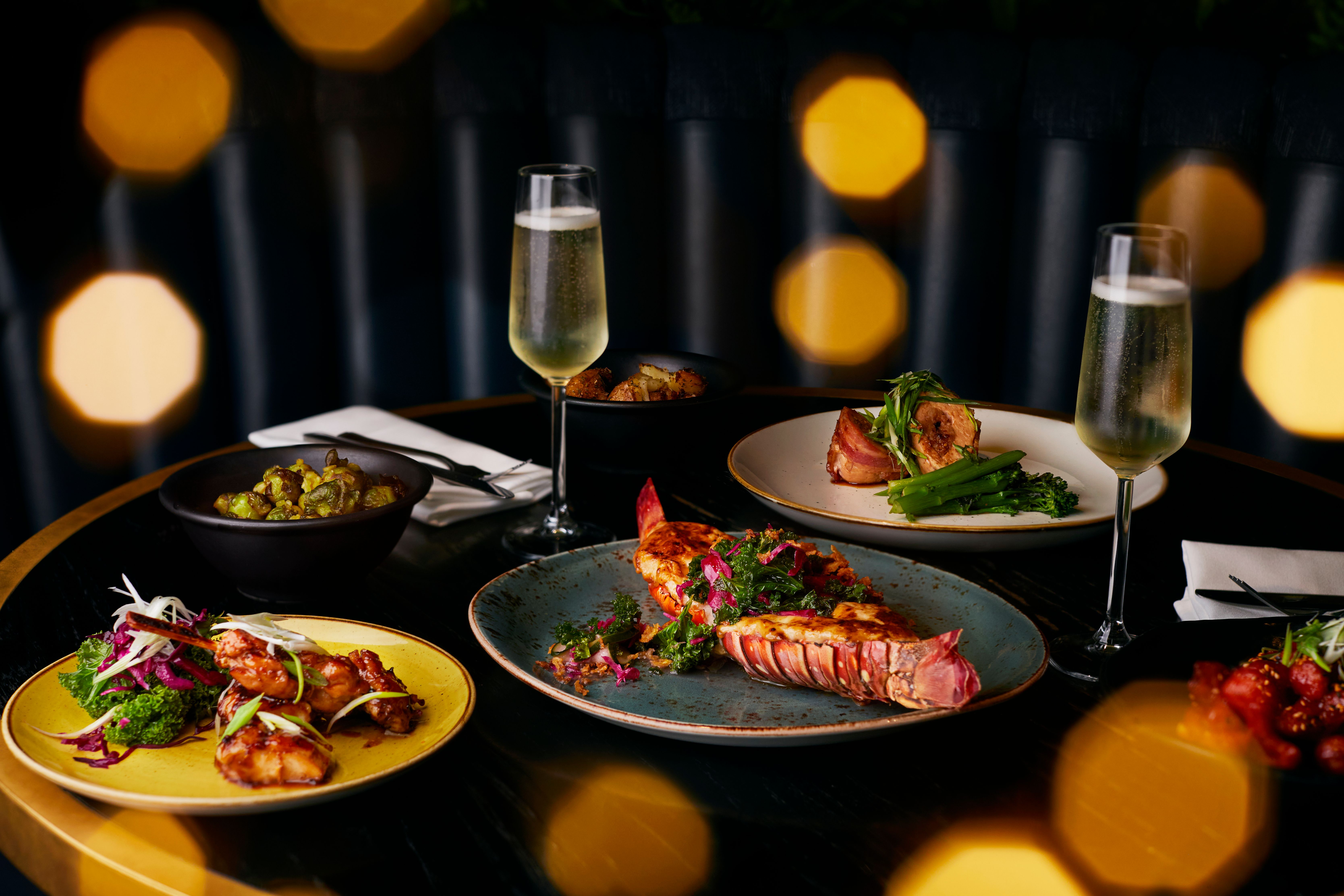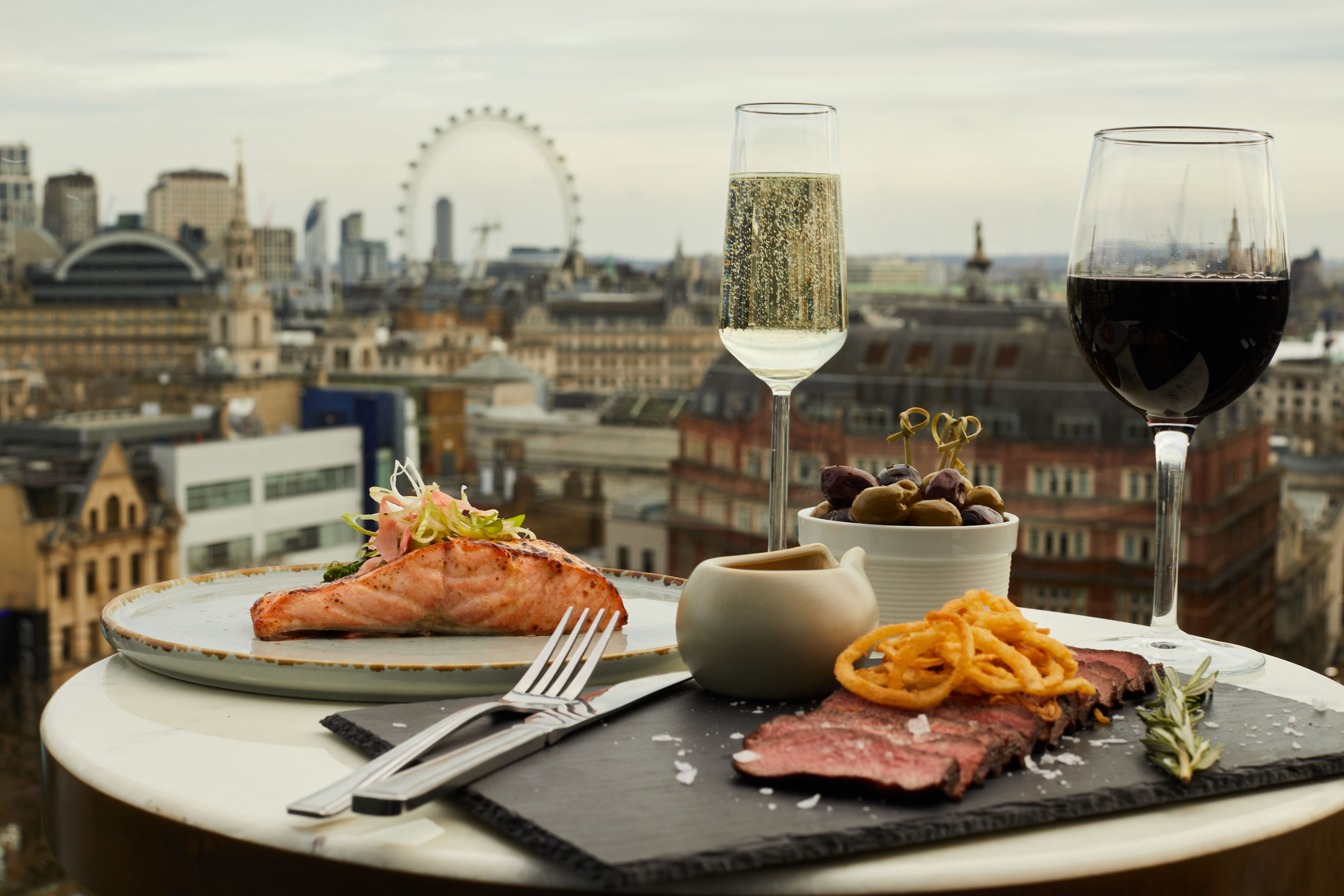Turning kitchens into profit centres: Unlocking revenue with branded food concepts

HRC talks to Lean Kitchen Network Founder Faraz Nagree about how multi-brand kitchens and iconic food concepts can help pubs, hotels and caterers unlock new revenue, maximise kitchen efficiency and drive consistent customer engagement.
What inspired you to launch Lean Kitchen Network, and in a nutshell what does the company do?
I founded Lean Kitchen Network because I could see a structural problem across hotels and pubs: incredible physical assets, but not enough volume or conversion to match the cost base. Rising energy prices, staffing challenges and tight margins have forced operators to rethink how they use their space. A lot of kitchens sit idle during off-peak periods, and that’s wasted capacity.
Lean Kitchen Network builds food concepts, brands and IP, and scales them through a network of kitchens in hotels, pubs, offices and workplaces. We also develop ready-to-eat and branded products for the pub, hotel and retail sectors. Our goal is simple: to drive profitability for the asset.
We help operators increase food volume, extend dwell time and boost drink sales through engaging branded menus and on-site marketing. Every launch comes with assets, digital content and training so that teams can execute consistently and drive conversion. The end goal is always the same: make every square metre of a venue work harder.
LKN connects hospitality operators and caterers with well-known brands. How does this model help operators unlock new revenue streams and make better use of kitchen capacity?
We help operators unlock new revenue streams in a few different ways. One is through on-site brands like Seared, our new Asian-inspired grill concept (pictured below), built for hotel, pub and bar environments. It drives conversion, dwell time and sales per location while maintaining strong gross profits and healthy net operating income. The menu is deliberately simple so that it can run with strong food cost control and low labour.

Given the level of turnover in hospitality right now, we’ve built full training and onboarding materials so new teams can take over quickly. That’s a big part of the value we add.
We also provide delivery-first brands like Twisted London, Hot Chick and Koreatown. Operators can sell these in-house via room service and the bar, or externally through delivery platforms like Deliveroo, Uber Eats, and Just Eat. It’s an easy way to fill downtime and generate incremental income from the same kitchen.
You recently partnered with Heinz to launch the Heinz Brekkie Beanz & Cheese Toastie across Morrison’s cafés. Tell us about the inspiration behind this.
We saw an opportunity to do something big in the breakfast category. Heinz is one of the most loved brands in the UK and appears in millions of breakfasts every week, but most operators weren’t tapping into that equity.
We started with a delivery-only concept, testing what worked such as breakfast burritos, hash brown dippers and egg bites, and used the data to refine the menu for grab-and-go formats. Then we expanded into offices and factories with contract caterers, offering a flavour-packed alternative to the traditional cooked breakfast.
The next step was ready-to-eat and chilled products, which are now available in almost 2,000 transport and forecourt locations nationwide. From there, we moved into hot food service with the Three Cheese & Beanz Toastie made with Heinz ingredients. Morrison’s cafés were first to launch it, and more partners will follow across hotels, pubs and contract catering in the coming months.
It’s a great example of what happens when you pair an iconic brand with a simple, scalable model that’s built for operators.
Many of your case studies highlight how branded concepts drive engagement. How should hotels, bars and catering operators think about branded menus, and can smaller independents do this too?
Branded menus only work when they make sense for the audience. Our Doritos Loaded dishes perform brilliantly in family, leisure and gaming-led venues where sharing and theatre drive sales. Heinz Brekkie thrives in high-volume hotels looking for affordable, fast breakfast options that still deliver flavour. Seared is ideal for premium casual settings where guests want something elevated whilst remaining simple for teams to execute.
It’s not a one-size-fits-all approach. The right brand brings recognition, marketing support and digital cut-through that independents can rarely achieve alone. We provide the creative, operational and marketing assets so even smaller operators can plug in without big capex or marketing budgets.
Many of our partner sites also run delivery alongside dine-in. In quieter or more remote areas, branded delivery can perform extremely well because competition is lower. Turning up online with a strong brand, consistent flavours and premium packaging is a big differentiator.
LKN works with major contract caterers such as Compass Group UK & Ireland. What does collaboration with large-scale catering partners look like, and how do you tailor your model to suit their operational needs?
Partnerships with contract caterers are all about fit and flexibility. We start by selecting the right concept for the client and their specific sites, because a university café is completely different to a corporate canteen or hospital. Once the concept is right, we work within their supply chain to product match and integrate. Our products are listed with major wholesalers and distributors, and we can adapt menus to their existing systems.
We normally pilot in a small number of locations, optimise the offer, and then roll out wider. Our team provides training, POS, marketing materials and ongoing performance tracking. We measure repeat rate, penetration, average order value and customer rating to prove the commercial impact before scaling. The model is revenue-share based, so it only works when the numbers stack up for both sides.
You’ve launched the Dreamers F&B Accelerator to support emerging food and beverage brands. How does this initiative fit into LKN’s wider mission and what support do these brands receive?
The Dreamers Accelerator, created with Simon Squibb, was our way of giving something back. It’s not a commercial venture. It’s about helping early-stage food founders who need access to real operational tools and honest advice.
We provide digital resources like costing templates, allergen guides and planning tools, and we’ve opened them up for anyone in the Dreamers community. The first cohort received direct support from our team on brand development, pricing and product structure. It’s about helping people take those first steps with less friction and more confidence.
How do you use data and digital tools to manage quality, streamline operations, and measure performance across partner sites?
Data sits at the centre of everything we do. We use it at every stage, from concept design to day-to-day site performance. We track customer intent, order mix, wait times, prep times, missed orders and customer ratings across every kitchen. It tells us where we can improve and where the opportunities are.
We also use trend analysis to identify emerging demand gaps and to pinpoint where a delivery brand is most likely to succeed. My background was in performance improvement consulting, so we’ve applied a continuous improvement approach, using lean and Kaizen principles to reduce waste, standardise processes and improve consistency.
Do you have a standout or favourite product or campaign that’s been launched by LKN?
It’s hard to pick one because every brand means something different, but our Wotsits Mac & Cheese activation stands out. We launched it in 2020 with a big influencer push, sending boxes to 200 micro creators. Within a few weeks it had over 35 million views across TikTok and social platforms and sold out nationwide.
It went on to roll out across 1,800 retail locations and is still expanding. It was a perfect example of how the right product, paired with smart marketing and strong quality, can explode into a major success.
Looking ahead, how do you see multi-brand and branded kitchen models evolving within hospitality, and what opportunities could this open up for hotels, restaurants, bars and caterers over the next few years?
I think the expectation around food quality will keep climbing, food trends will move faster, and the staffing challenges will remain. Models like ours can play a bigger role as outsourced food partners for hotels, bars and caterers, handling concept design, menu development, training, sourcing, content and marketing.
That allows operators to focus on what they do best, like managing rooms, guests and overall experience, while we keep their food offer relevant, profitable and operationally simple.
We see the future moving towards cleaner labels, more thoughtful ingredients and flexible models that can scale across different formats. That’s where we’re spending most of our time and energy.
To keep up to date with all the latest news, interviews and industry insights, subscribe to the HRC newsletter.
)
)
)
)
)
)
)
)
)
)
)
)
)
)
)
)
)
)
)
)
)
)
)
)
)
)
)
)
)
)
)
)
)
)
)
)
)
)
)
)
)
)
)
)
)
)
)
)
)
)
)
)

)
)
)
)
)